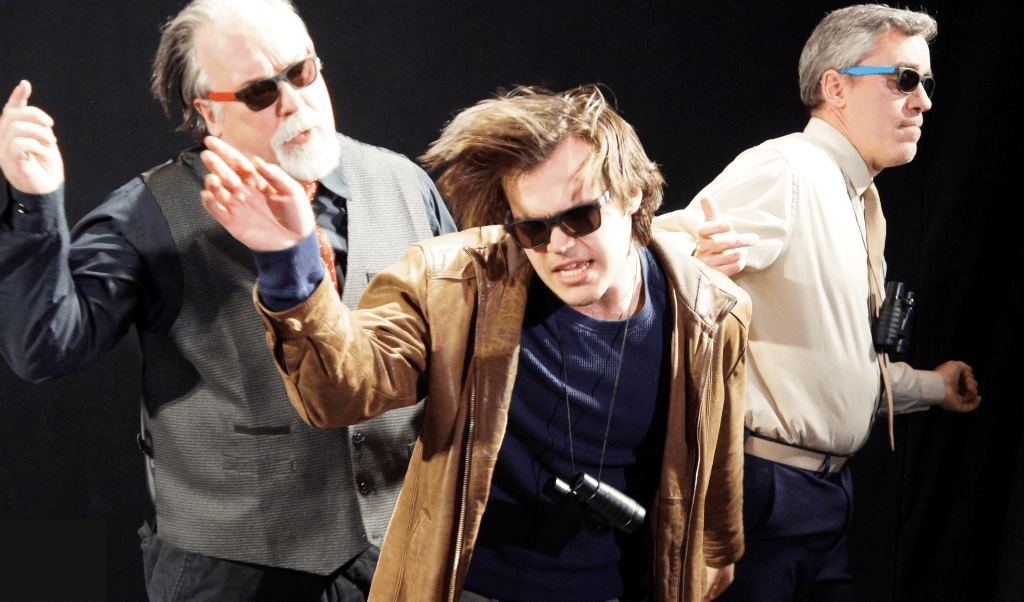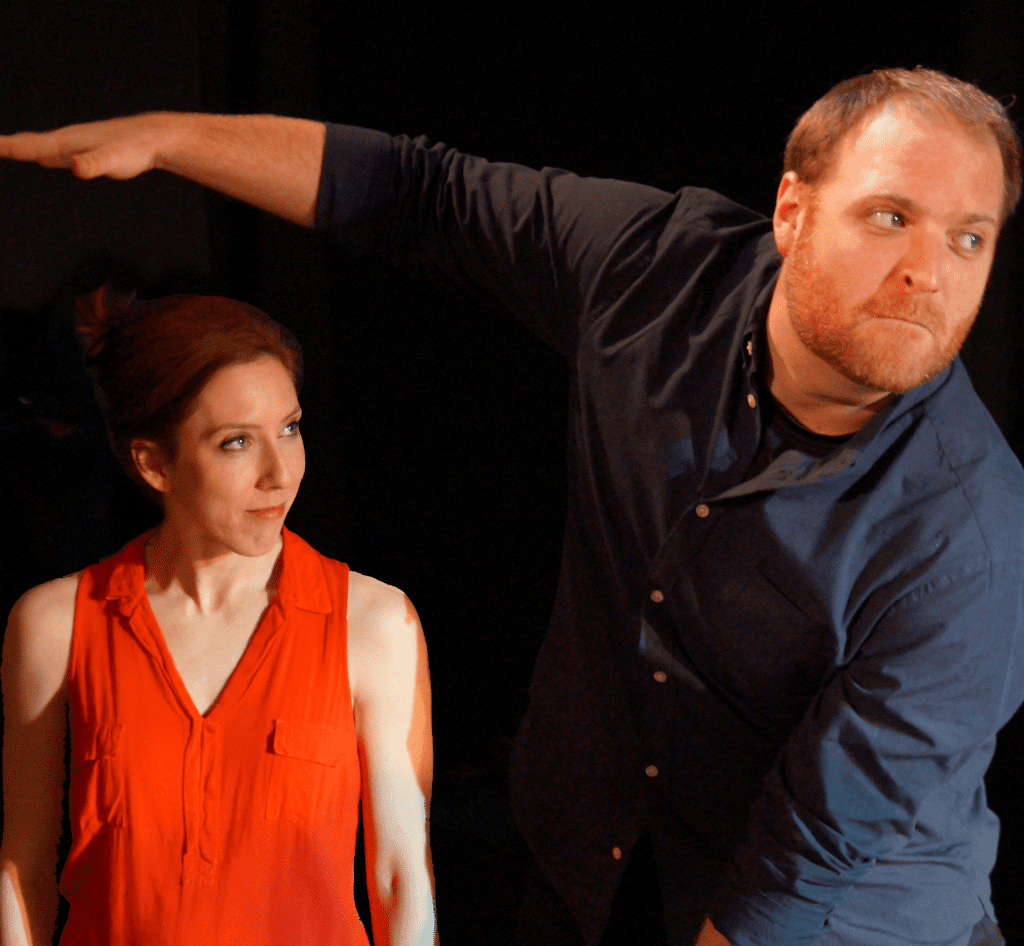“For man is a giddy thing” says Benedick at the conclusion of Shakespeare’s Much Ado About Nothing. Giddy is a word that perfectly encapsulates Hamlet Isn’t Dead’s joyful and high-energy production of Much Ado, now playing at the Center at West Park’s Balcony Theater.
The play text is streamlined and rendered with speed, clarity, and exuberance. The talented cast as directed by James Rightmyer never stop moving and racing around the stage, sometimes breaking into song and dance (music by James Overton). There are darker undercurrents in this play, but they are largely banished here, as the production expertly moves between moments of slapstick humour and deeply felt emotion.
Much Ado takes place in the Italian countryside at the estate of Leonato (James Michael Armstrong), who lives with his wife Ursula (Heaven Stephens; a character created here by conflating two characters from the play), their daughter Hero (Regina Renée Russell), and Hero’s cousin Beatrice (Hayley Palmer). The action begins with the welcoming home of soldiers, notably Don Pedro (Joe Regan), his inexplicably malevolent brother Don John (Morgan Hooper), and his close companions Benedick (Michael Thatcher) and Claudio (Noah Ruff). Love ensues: Hero and Claudio as ingénue and suitor, while Benedick and Beatrice, who engage in elaborate verbal jousting and insult contests and profess antipathy to marriage, are tricked into admitting their amorous feelings for each other. Don John creates trouble for trouble’s sake, which leads to Hero’s brutal rejection at the altar by Claudio, a plan to fake her death, a confrontation between Benedick and Claudio, and ultimately Hero’s resurrection and marriage, as Benedick and Beatrice, the two consummate cynics, reluctantly and hilariously concede their mutual love and join in the marriage ceremony.

Rightmyer’s production doesn’t attempt to offer a new interpretation of the play, nor is it set in a specific modern milieu. The focus is on the language—spoken with such colloquial clarity that it hardly seems out of place in 2018—and on the fun (in these respects the production seems to draw some of its tone and ideas from Kenneth Branagh’s 1993 film adaptation). You can’t have a successful Much Ado without a stellar Benedick and Beatrice, and both Michael Thatcher and Hayley Palmer excel. Thatcher captures Benedick’s simultaneous cockiness and vulnerability, while Palmer portrays Beatrice with an ironic detachment that persists even in her jokingly reluctant acceptance of Benedick’s proposal, as she places the ring on her own finger. The scene in which they first declare their mutual love and in which Beatrice insists that Benedick “kill Claudio” manages to be seamlessly funny, poignant, and deadly serious.
The other roles are skillfully handled as well. Regina Renée Russell gives Hero a wit and depth that she often seems to lack, especially when set against Beatrice. Megan Greener’s manic Dogberry had the audience in stitches, while Morgan Hooper’s mannered, awkward Don John worked well for what must be Shakespeare’s strangest villain. James Michael Armstrong captures both Leonato’s fatherly tenderness and his flashes of patriarchal sternness, and Joe Regan is excellent as a good-natured, even at times silly, Don Pedro.

Two guitarists (James Powers and Maureen Fenninger) are seated on stage through much of the production, offering not only musical accompaniment but also interacting with the characters and reacting to their foibles and shenanigans. The music is a lovely addition to the play, particularly the renditions of the song “Sigh no more,” though the verbal interjections from this quasi-chorus distract a bit.
The performance embraces joy and merriment but with such skill that it doesn’t seem naïve or simplistic. This is Shakespeare that is accessible and moving, and even those as love-averse as Benedick and Beatrice claim to be would have a hard time not succumbing to the charms of Hamlet Isn’t Dead’s production.

